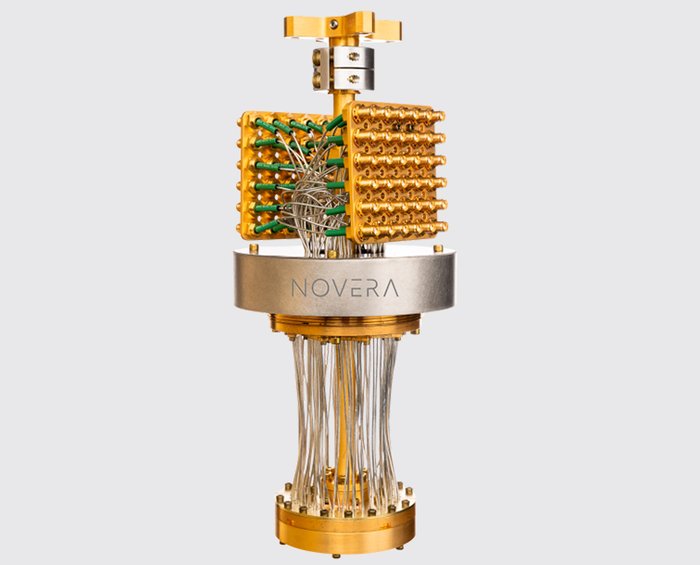
Connects decision-makers and solutions creators to what's next in quantum computing
Orca Acquires Integrated Photonics Division of GXC: Q&A
The acquisition enables the development of hybrid photonic materials and using networking to scale quantum computers

Full-stack quantum computing company Orca Computing has acquired the Austin, Texas-based integrated photonics division of cellular network company GXC. The deal includes GXC’s photonics-related assets, including intellectual property (IP) and existing technology.
Orca intends to bring to market new and promising hybrid photonic materials, which it plans to use to enhance the performance of its PT Series quantum computers and support progress toward scalable, fault-tolerant quantum computing.
In this Q&A, Orca co-founder and CEO Richard Murray explains how bringing photonic integrated circuit design capability in-house relates to the company’s goals.
Enter Quantum: How will Orca’s acquisition of the integrated photonics division of GXC support the company’s goals?
Richard Murray: Orca is in the business of providing quantum systems, including scalable quantum systems, to our customers. Today we’re working with a lot of leading off-the-shelf telecoms components, mindful that as we go, we're already at the forefront of the performance of those telecoms components.
We’ve undertaken a review over the last year or so to look at how we should move into this market for new materials and two things have emerged. One is that there's a huge wealth of exciting new photonic materials that have been bubbling up through the research base. The timing for those seems very good for us; they've matured in academic circles but haven't yet been truly commercialized or industrialized.
At the same time, we identified that the integrated photonics division of GXC is leading in the development of those materials and saw that it would be a strong move to acquire this division of GXC Photonics, to be able to advance Orca’s roadmap and capitalize on these new materials.
Orca is also taking on GXC’s photonics IP. How will you use that?
We acquired all of their previous technologies, which mostly relate to a toolkit for building very low-loss waveguides, which is core to the approach that everyone has in photonic quantum computing and beyond. That out of the box straightaway is an immediate advantage to us.
It allows us to effectively buy in and incorporate years’ worth of development in low-loss waveguides and allows us to take that existing work and use it to accommodate these new materials. We have this idea of bringing to market hybrid materials, taking their existing work and adding additional new materials to achieve some of the missing elements needed to scale up photonic quantum computing.
Both companies have a history of working with national defense clients, Orca with the U.K. Ministry of Defense and GXC with DARPA. Will the acquisition open up more defense work?
The defense landscape remains an exciting opportunity on both sides of the Atlantic and there is a commonality there. When you're doing an acquisition, it’s important to identify a team that's a good technical match and has a similar culture. We saw a lot of the same characteristics within the incoming team as we have at Orca.
Their technologies are world-leading and they are quick to bring things to market, flexible and adaptable, which is exactly how we operate. It was nice to see a defense connection that we both have as well.
GXC’s parent company operates in networking. Does that offer any additional benefit?
The short answer is no. However, at Orca we are positioning ourselves to build quantum computers that benefit from the scalability of networking and this incoming team will help accelerate that. Whether you call it a network for networking purposes, or whether you use the network to scale up a quantum computer, it's similar in many ways, so we can leverage that telecoms architecture.
To scale up a quantum computer, everyone is looking towards networking. The industry talks about building a million-qubit system, but it’s very hard to imagine any platform doing that without photonics or telecoms.
One of Orca’s core founding principles is that we enhance what we do by building our very quantum computer out of telecoms infrastructure as it immediately allows scaling out of the box. In that way, we always looked a lot like a networking company.
We're not focusing on the network we're focusing on computing, because that's the way we believe that scaling will be achieved and that's our core philosophy. This incoming team slots into that philosophy perfectly, helping us deliver better components to help drive that move to very large-scale networks and quantum computing systems.
About the Author(s)
You May Also Like
.png?width=100&auto=webp&quality=80&disable=upscale)
.png?width=400&auto=webp&quality=80&disable=upscale)




